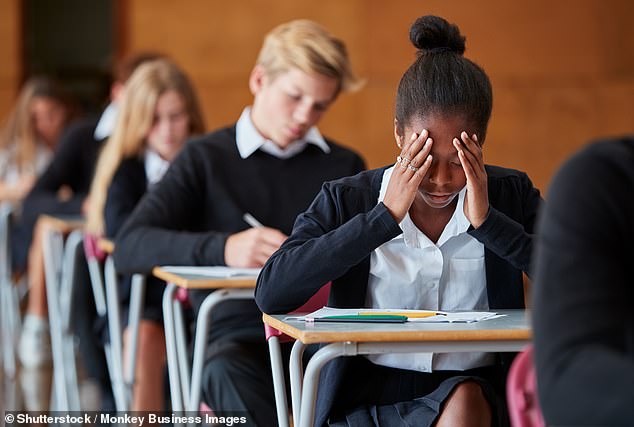The number of students granted extra time in GCSE and A-level exams due to special needs has surged by over 42% in just four years, raising concerns about potential system manipulation.
Department for Education (DfE) data reveals a staggering increase from 256,710 pupils in 2019 to 365,915 in 2023, meaning over a quarter of all exam takers last year received additional time to complete their papers.
This revelation comes as students across England and Wales anxiously await their GCSE results, due to be released on Thursday. The weekend saw experts suggest that officials may be favouring "feel good results" this year, potentially leading to a rise in top grades.
Analysis of the figures by school type highlights a significant disparity: 39% of private school pupils were granted extra time in 2023, compared to just 24% of those at comprehensives. This disparity fuels concerns that some well-connected parents may be "gaming the system" to secure extra time for children who do not necessarily meet the traditional criteria for learning difficulties.
Extra time is officially granted as an "access arrangement" for pupils with learning difficulties or disabilities. Eligibility requires either an Education, Health and Care Plan (EHCP) confirming the condition, or a low score on a standardised test assessing speed of writing, reading, and cognitive processing.
Iain Mansfield, Head of Education at the Policy Exchange think-tank, expressed concern: "If exams are to maintain public confidence, it is crucial that they provide a genuinely level playing field. The Government needs to investigate the reasons behind this dramatic rise in extra time allowances."
Beyond extra time, other special considerations, such as "practical assistants" and "scribes," have also seen a significant increase, rising from 404,600 in 2019 to 556,435 in 2023 â a 38% jump. It's important to note that some pupils may have received multiple accommodations, meaning the actual number of students with special considerations will be lower.
Pupils with well-documented conditions like dyslexia are eligible for extra time. However, exam board documents also allow applications from students with "social, emotional and mental health needs," reflecting a broader societal trend.
Last year, UCL research indicated a more than doubling in the diagnosis of ADHD among boys aged 10 to 16 between 2000 and 2018.
While extra time can be beneficial, particularly in subjects like mathematics where many students struggle to finish the papers, the sharp rise in applications raises questions about fairness and the potential for abuse.
A DfE spokesperson stated: "The increase in pupils receiving extra time is unsurprising, mirroring the rise in children with Education, Health and Care Plans. It is crucial that students with special educational needs and disabilities are granted reasonable adjustments, ensuring they are not disadvantaged compared to their peers, both in exams and later in life."
Despite the DfE's assurance, the dramatic surge in extra time allowances warrants further investigation and scrutiny to ensure that the system remains fair and accessible to all students, regardless of background or special needs.
Article
Business

GCSE & A-Level Extra Time Soars: Is the System Being Gamed?

